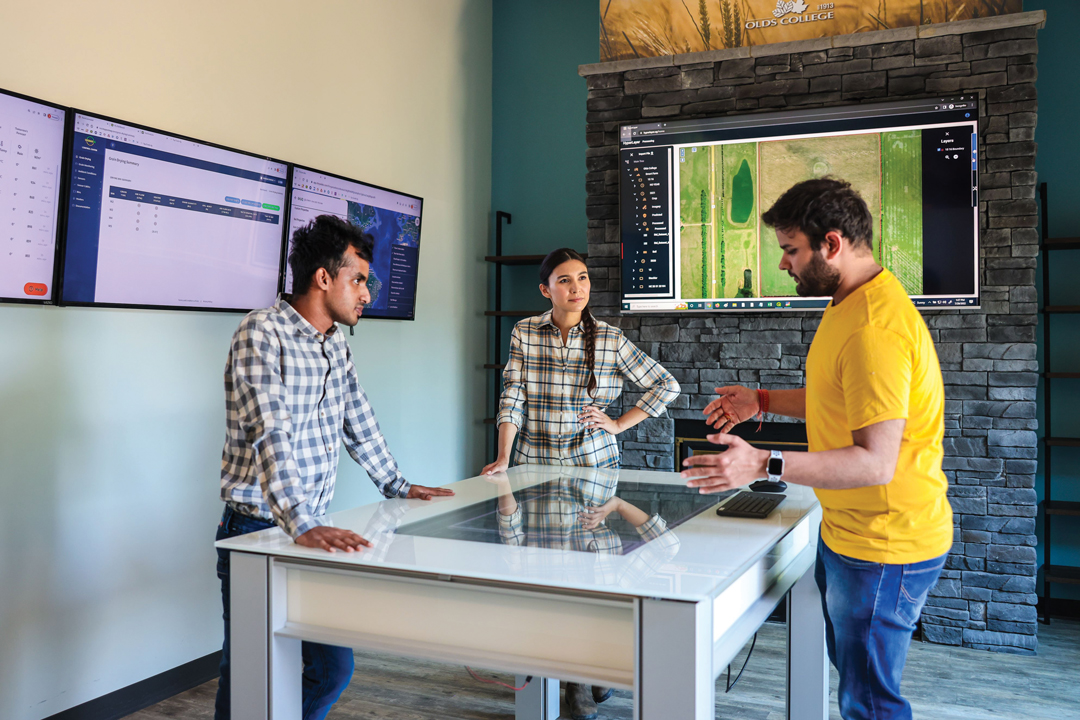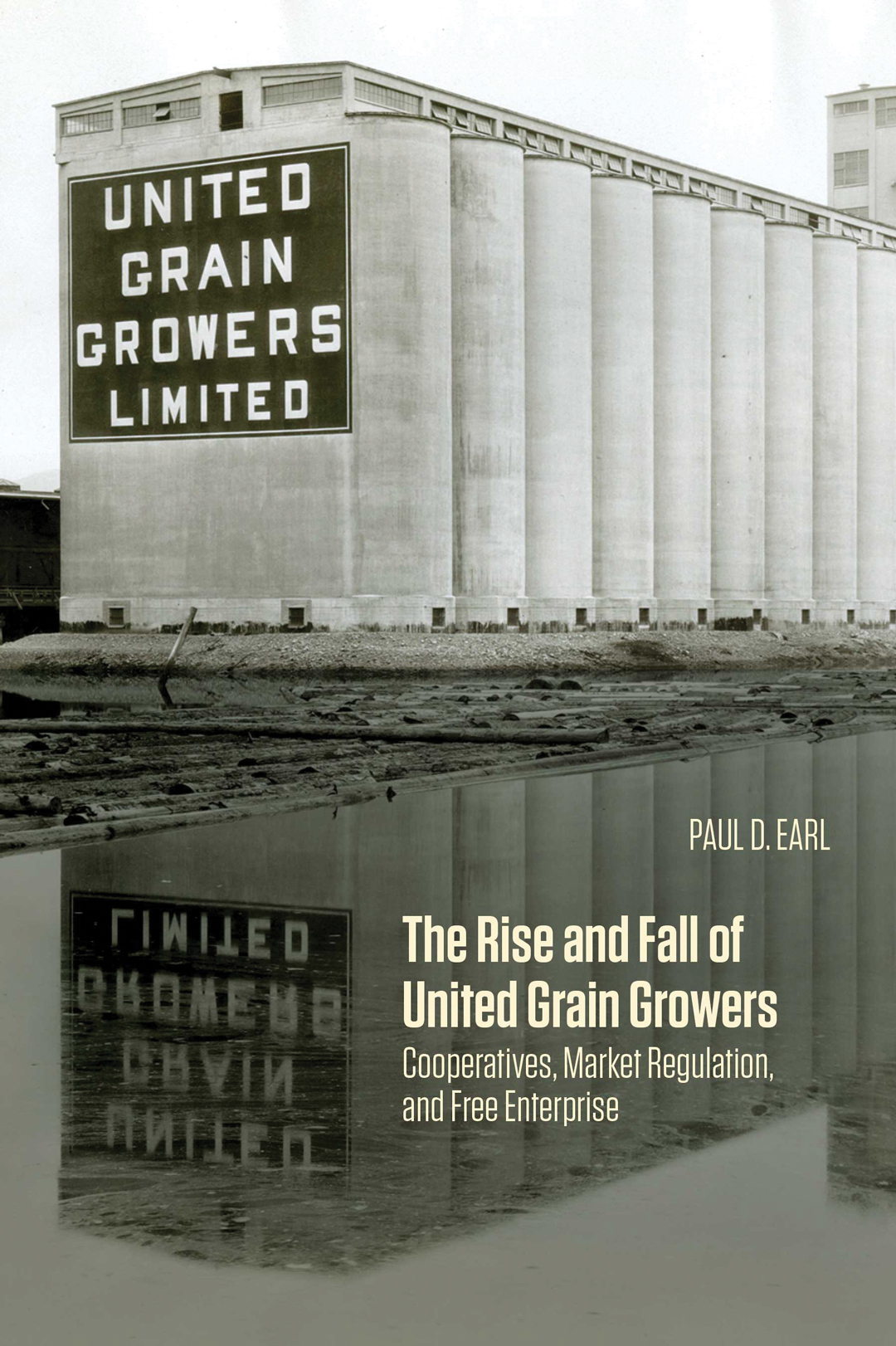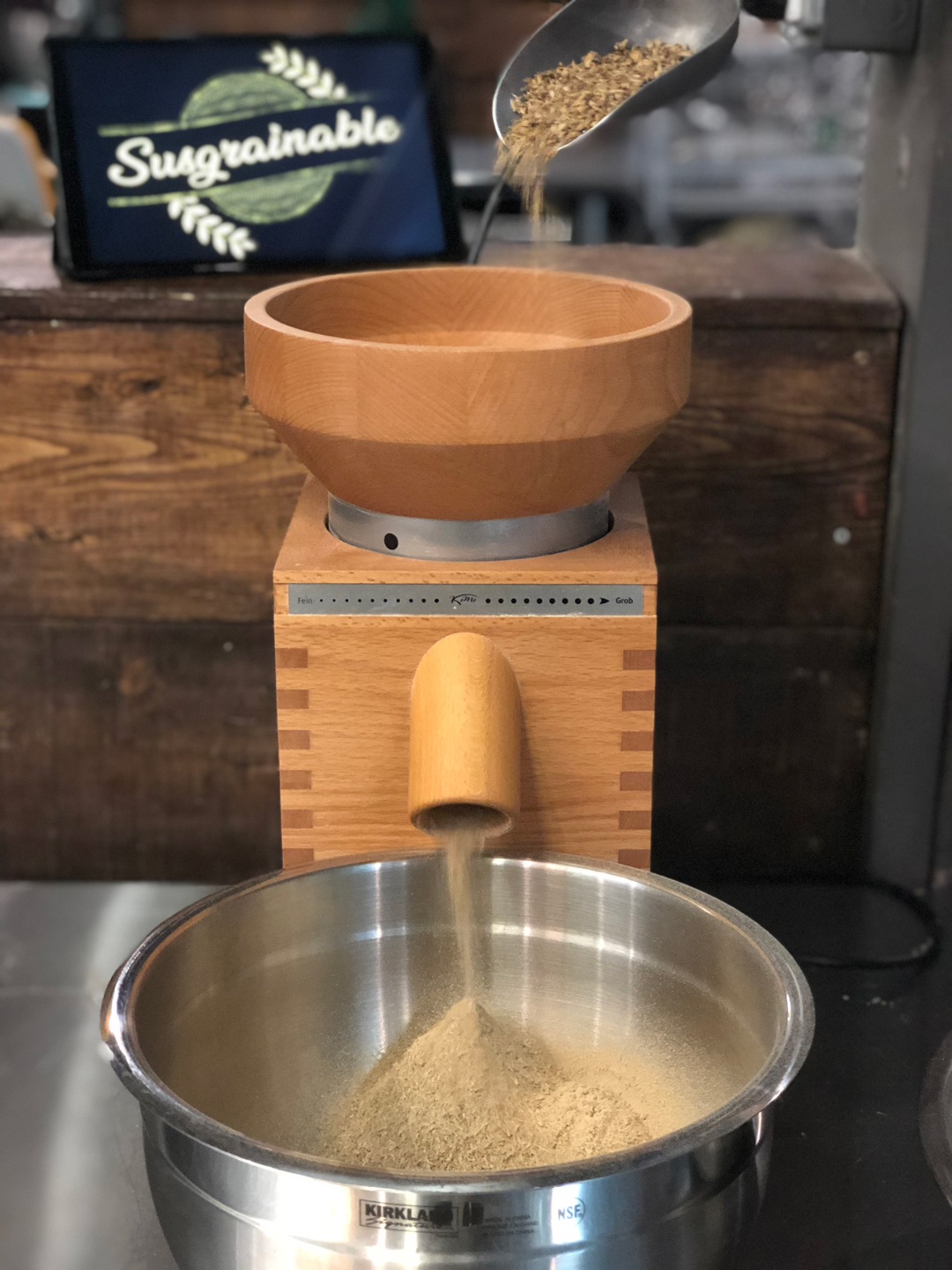SKILLS TO FIT THE FUTURE
BY JAY STEEVES • PHOTO COURTESY OF OLDS COLLEGE
As the agricultural landscape undergoes a significant shift, Olds College of Agriculture & Technology stays attuned to the industry’s emerging needs and trends such as the critical challenge posed by the current labour shortage. We perceive this challenge as an opportunity to sculpt the future of agriculture through progressive education and state-of-the-art technology.
We recognize the demands of agriculture are evolving, and success in the field demands an expanded skillset. The integration of precision agriculture, data analytics and automation into daily farming practices calls for farm workers to possess a unique mix of traditional knowledge and technological skills. Our programs blend the use of technological advancements with traditional agricultural practices. This practical combination prepares our graduates to contribute significantly to the workforce.
Our Bachelor of Digital Agriculture degree is a great example of this educational approach. We were delighted to welcome our first cohort to the program in September 2023. Students who enroll gain a comprehensive understanding of core agricultural principles and practical training while they also utilize digital tools and automation technologies. By focusing on these skills, we prepare our graduates to enter the workforce not merely as agricultural professionals but as pioneers who optimize processes, boost productivity and contribute to agriculture’s sustainable future.
The program emphasizes digital literacy as well as technological expertise. Its curriculum provides hands-on experience in the use of cutting-edge tools. These include drones to capture digital imagery, Veris machines for precise soil sampling as well as various weather stations and satellite mapping technology for additional data collection. Students also engage with advanced technologies such as GPS-controlled field equipment and the use of global navigational satellite system-controlled auto steering. They participate in drone flight missions to complete tasks such as spraying and weed identification. This produces data-driven insights to optimize crop management.
The program also integrates design thinking that empowers students to develop solutions for agricultural equipment challenges and create 3D prototypes. They delve into the emerging multidisciplinary field of mechatronics engineering to design electrical control systems that make farm operations more efficient. By actively participating in these real world applications, our graduates emerge as future employees and forward-thinking change-makers who comprehend the pivotal role of innovative education to address pressing agricultural challenges.
As students actively engage in this immersive approach, it reinforces a strong connection between theoretical knowledge and the practical application of these increasingly important tools. Our graduates gain a comprehensive understanding of both traditional agricultural principles and the latest technological advancements. This strong emphasis on practicality ensures students can skillfully use technology to drive positive change. They gain the experience essential for success. As a result, our graduates stand out in the competitive and rapidly transforming agricultural sector.
As we foster a strong connection between theory and practice, we ensure students are proficient in agricultural principles and adept at applying technological solutions to actual problems. Though the needs of the agricultural industry continue to evolve, I am optimistic we will experience a future in which new technology and traditional field practices merge harmoniously to foster a sustainable and thriving industry.
Jay Steeves is dean of the Werklund School of Agriculture Technology.







Comments